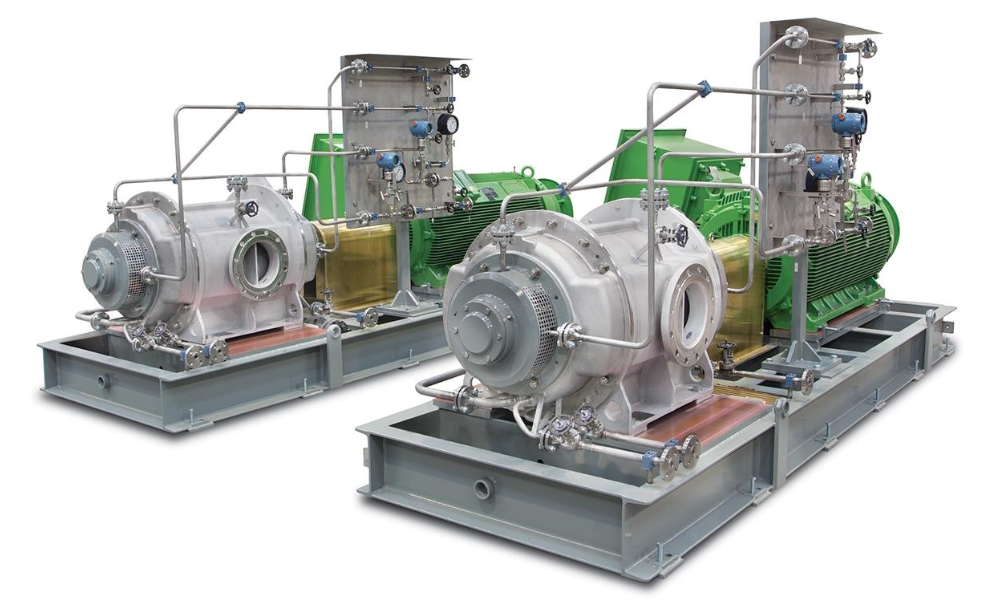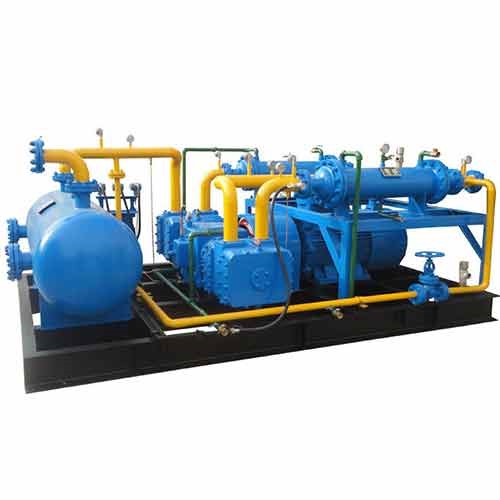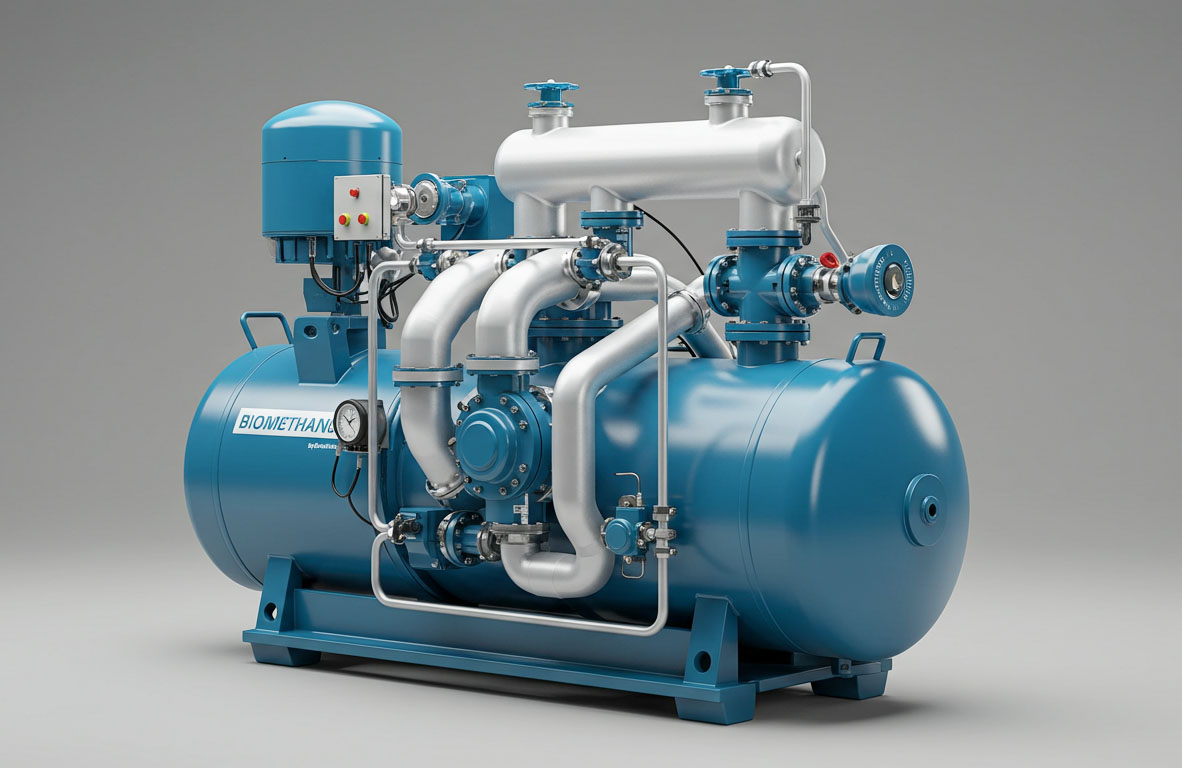Chlorine Compressor: A Comprehensive Guide

Learn all about the operation and applications of chlorine compressor in this comprehensive guide. From custom engineered systems to precise leakage control, this guide covers all aspects of chlorine gas compression.
Chlorine compressors stand as pivotal components in the realm of industrial processing, embodying the intricate balance of technology, safety, and efficiency. These sophisticated systems are specifically designed to manage chlorine – a vital but challenging chemical widely used across various sectors. The role of chlorine compressors extends beyond mere machinery; they are the backbone of numerous industrial applications, facilitating the safe and effective handling of chlorine gas. From chemical manufacturing to water treatment, these compressors play a crucial role in transforming chlorine gas into a more manageable and safer form for transportation and storage. This introduction sets the stage to explore the dynamic world of chlorine compressors, highlighting their indispensable contribution to modern industry.
Understanding Chlorine Compressors: Basics and Mechanics
At its core, a chlorine compressor is a specialized device designed to compress chlorine gas compressor, elevating it from a low-pressure state to a significantly higher pressure. This process is not just about compression; it involves a meticulous transformation of chlorine gas into a liquid state. The compressor intakes chlorine gas and, through a series of mechanical actions involving pistons or rotors, increases the pressure, effectively condensing the gas into a liquid. This phase change is crucial for applications where liquid chlorine is necessary or for safer and more efficient storage and transportation.
Maintaining optimal pressure and temperature throughout this process is paramount. The precise control of these parameters ensures the integrity of the chlorine, preventing any potential hazards associated with its reactive nature. It is this careful management of pressure and temperature that makes chlorine compressors indispensable in industries reliant on chlorine for various processes, ensuring not just efficacy but also the utmost safety.
The Importance of Chlorine Compression in Industry
Chlorine compressors are integral to industries where chlorine’s reactive properties are essential yet present significant handling challenges. In the realm of chemical manufacturing, these compressors are pivotal, providing a means to safely manipulate chlorine gas for various chemical reactions and product formulations. Chlorine, a key disinfectant, also plays a crucial role in water treatment processes, where compressors are used to ensure its safe application in purifying water supplies.
The necessity of compressing chlorine for storage and transport cannot be overstated. In its gaseous form, chlorine is not only difficult to handle but also poses considerable safety risks. Compressors convert chlorine gas into a liquid form, significantly reducing its volume and making it safer and more practical to store and transport. This conversion is crucial for maintaining a consistent and reliable supply chain in industries that depend on chlorine.
Furthermore, the proper handling of chlorine gas is imperative to prevent leaks and potential hazards. Chlorine compressors, therefore, are not just facilitating industrial processes but are also safeguarding health and environmental standards, underscoring their significance in modern industry.
Innovations in Chlorine Compressor Technology
The field of chlorine compressor technology has seen significant advancements, notably in the development of liquid ring compressor technology. This innovation stands out for its ability to handle gases that are corrosive or contain particulates, making it particularly suitable for chlorine gas. Liquid ring compressors operate with a sealant liquid, often water, which creates a liquid ring within the compressor, providing a seal and absorbing heat from the gas compression process. This method is not only more efficient but also enhances operational safety by reducing the risk of gas leaks and corrosion.
These technological strides have been spearheaded by industry leaders like Garo and Nash. Garo’s custom-built OEM solutions are tailored for handling toxic and corrosive gases like chlorine, focusing on rugged, reliable designs that exceed industry standards. Nash, on the other hand, specializes in designing chlorine compressors and systems that cater to specific process needs, emphasizing material choice and system configuration for optimal safety and efficiency.
These advancements underscore the commitment to innovation in the industry, where the focus is not only on enhancing efficiency and reducing operational costs but also on ensuring the highest safety standards in handling hazardous materials like chlorine.
Safety and Control in Chlorine Compressor Systems
The handling of chlorine gas in industrial settings demands stringent safety measures, primarily due to its highly corrosive and toxic nature. Chlorine compressors, therefore, are designed with a plethora of safety features to mitigate these risks. One such feature is the use of corrosion-resistant materials like titanium in their construction, which ensures longevity and reduces the likelihood of deterioration and leaks.
Additionally, modern chlorine compressors are equipped with sophisticated valve systems and control mechanisms. These components are crucial for regulating the flow and pressure of the chlorine gas, thereby preventing over-pressurization and potential system failures. Such controls not only enhance operational safety but also ensure the precise handling of the gas, which is essential in processes where accuracy is paramount.
Regular maintenance and system checks form the backbone of operational safety in chlorine compression systems. These routine inspections and servicing ensure that all components are functioning correctly and safely, detecting any potential issues before they escalate into hazards. This proactive approach to maintenance is essential in an industry where even minor oversights can have significant consequences, emphasizing the critical nature of safety in chlorine compression systems.
Custom Solutions and Engineering Expertise
In the diverse world of industrial applications, the one-size-fits-all approach is often inadequate, particularly for complex systems like chlorine compressors. Custom-engineered solutions become essential, tailored to meet the specific needs of different industries. Expert engineers play a pivotal role in this customization process, combining innovation with technical know-how to design chlorine compressors that align precisely with client requirements and industry standards. This bespoke approach ensures that each compressor not only meets the unique demands of each application, from chemical processing to water treatment, but also optimizes performance, efficiency, and safety. The customization of chlorine compressors underscores the industry’s commitment to providing solutions that are as varied as the challenges they aim to solve.
Environmental Considerations and Compliance
Handling chlorine responsibly is crucial for environmental protection. Chlorine compressors must comply with stringent environmental and safety regulations to mitigate any potential impact. This compliance underscores the industry’s commitment to sustainable practices and the safeguarding of both public health and the environment.
Future Trends and Developments in Chlorine Compression
The future of chlorine compression technology points towards greater efficiency and environmental sustainability. Advances are likely to focus on reducing energy consumption and minimizing ecological footprints, paving the way for more eco-friendly industrial processes while maintaining high safety and performance standards.
Conclusion
Chlorine compressors play a vital role in numerous industrial applications. As technology evolves, there is a growing emphasis on innovation, particularly in enhancing safety and environmental compliance. The industry’s future lies in continuously improving these systems, ensuring they meet the ever-changing demands of a dynamic industrial landscape.


